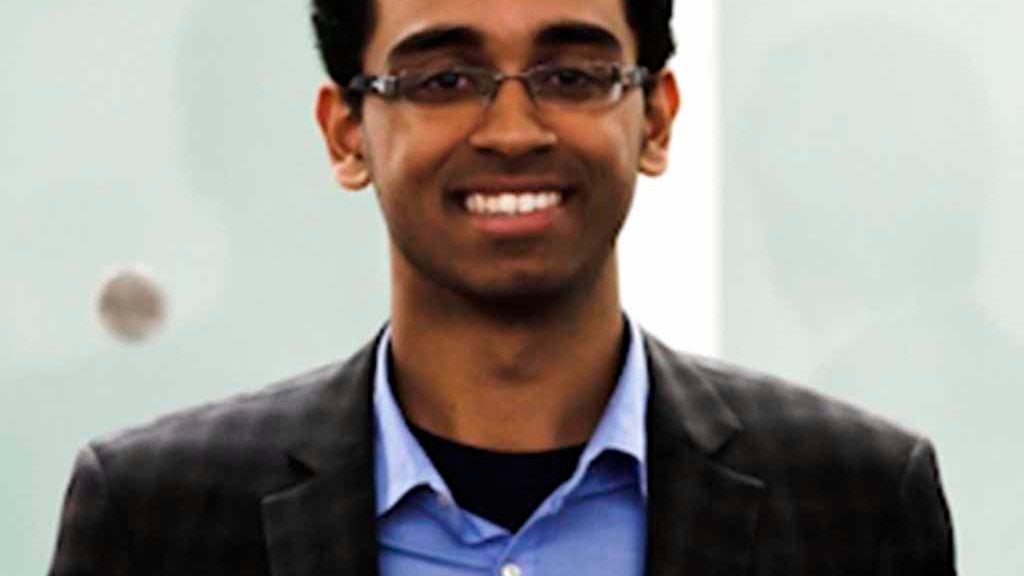Georgetown Student Wins Prestigious Palmer Award

Atul Menon, a Georgetown University Qatar (GU-Q) junior majoring in International Economics, was recently announced as only one of three students worldwide to receive this year’s prestigious Palmer Award. The award, which includes $700 in prize money, is given in collaboration with the U.S.-based Leadershape Institute, and recognizes the achievements of committed students who bring their vision for a better world to reality.
Each year, the winners are selected from the pool of participants who applied for, and were selected to take part in one of the many annual training seminars that the Leadershape Institute holds all over the world a year prior. Originally developed in 1986, the Institute was designed as a means of improving campus leadership, and has since expanded its mission of developing young adults’ leadership capacity through partnerships with various institutions across the United States and throughout the world.
It was through the Institute’s collaboration with the Qatar Foundation that Atul, who graduated from Doha’s Ideal Indian School before university, took part in one of their annual seminars during his freshman year at GU-Q. Held in Doha in January of 2012, the leadership seminar brought together mentors from the Institute, the Qatar Foundation, and students representing various Education City schools.
“The vision I created at LeaderShape was to ensure that migrant workers should be treated with the respect and dignity they deserve”, said Atul. “Often, employers, confiscate passports, fail to honor contracts and do not provide their workers with valid identification cards, which are all in violation of Qatar’s labor laws and international human rights standards.” His vision also included providing financial education, so that the economic benefits of working abroad could be maximized.
Over the course of the year following the training, and with the support of GU-Q firmly behind him, Atul took his work outside of campus, interacting with workers and getting a sense of their situation. “The first thing I did was to educate and inform myself, so that I didn’t start with preconceived notions.” Atul, who speaks five languages, including many of those spoken by the majority of low-income migrants, tries to educate the workers of the rights and privileges they have according to Qatari law, since many of them are unaware.
“It’s important to know that not every migrant worker has the same story. The issue shouldn’t be sensationalized. We have to have a complete understanding of the situation, so that real and practical solutions can be developed, and implemented,” said the young award winner.
He collaborated with 2011 GU-Q graduate Aakash Jayaprakash, whose work on migrant laborer issues had started in his own undergraduate years, and had since continued. Atul also volunteered on a large-scale behavioral economics research project involving migrant workers, headed by two GU-Q economists, Alexis Antoniades and Ganesh Seshan.
His hard work in the library and classrooms of Georgetown paid off, when in April of this year, his research team, mentored by Ganesh Seshan and Suzanne Mirgani, and including the collaboration of students Fatema Hubail, Hisham Hassan, Salman Ahad Khan, Salar Khan and Ahwaz Akhtar, was awarded a $60,000 undergraduate research grant from the Qatar National Research Fund to study migrant worker issues in Qatar. The proposed project, titled “Advancing Financial Literacy Among Transnational Families”, aims to create a financial curriculum to educate migrant workers in Qatar about the various saving and investment opportunities they have in Doha and back home.
Asked why he chose migrant labor for the leadership project, and the subsequent hard work that earned him the Palmer Award, he answered, “These people just happened to be born into low-income families, hence migrating for better economic opportunities. At Georgetown, we have a motto: Men and Women for Others. Ultimately,it’s serving the needs of these hardworking individuals that gives me the greatest personal satisfaction.”